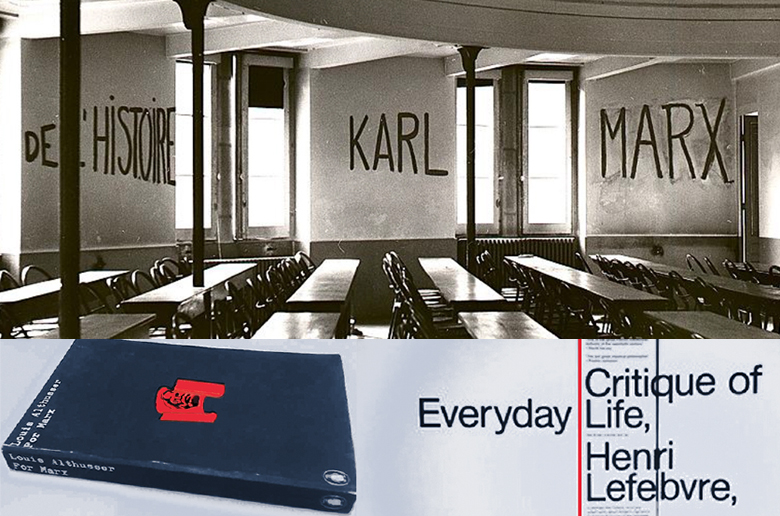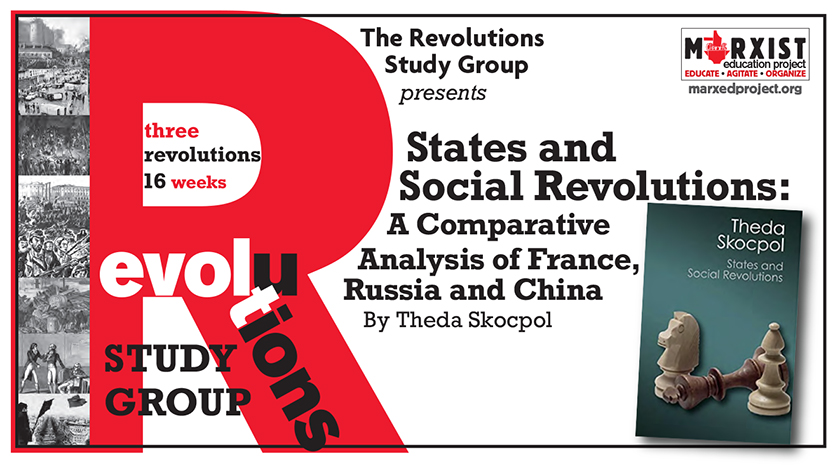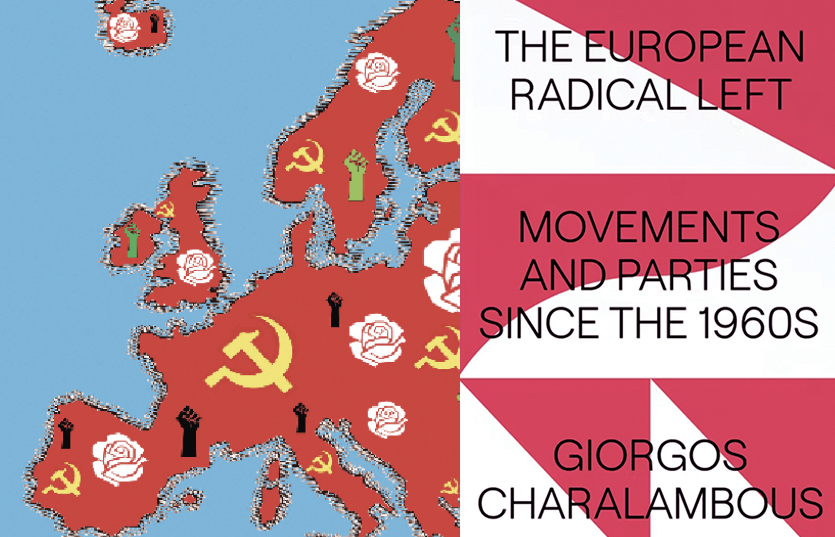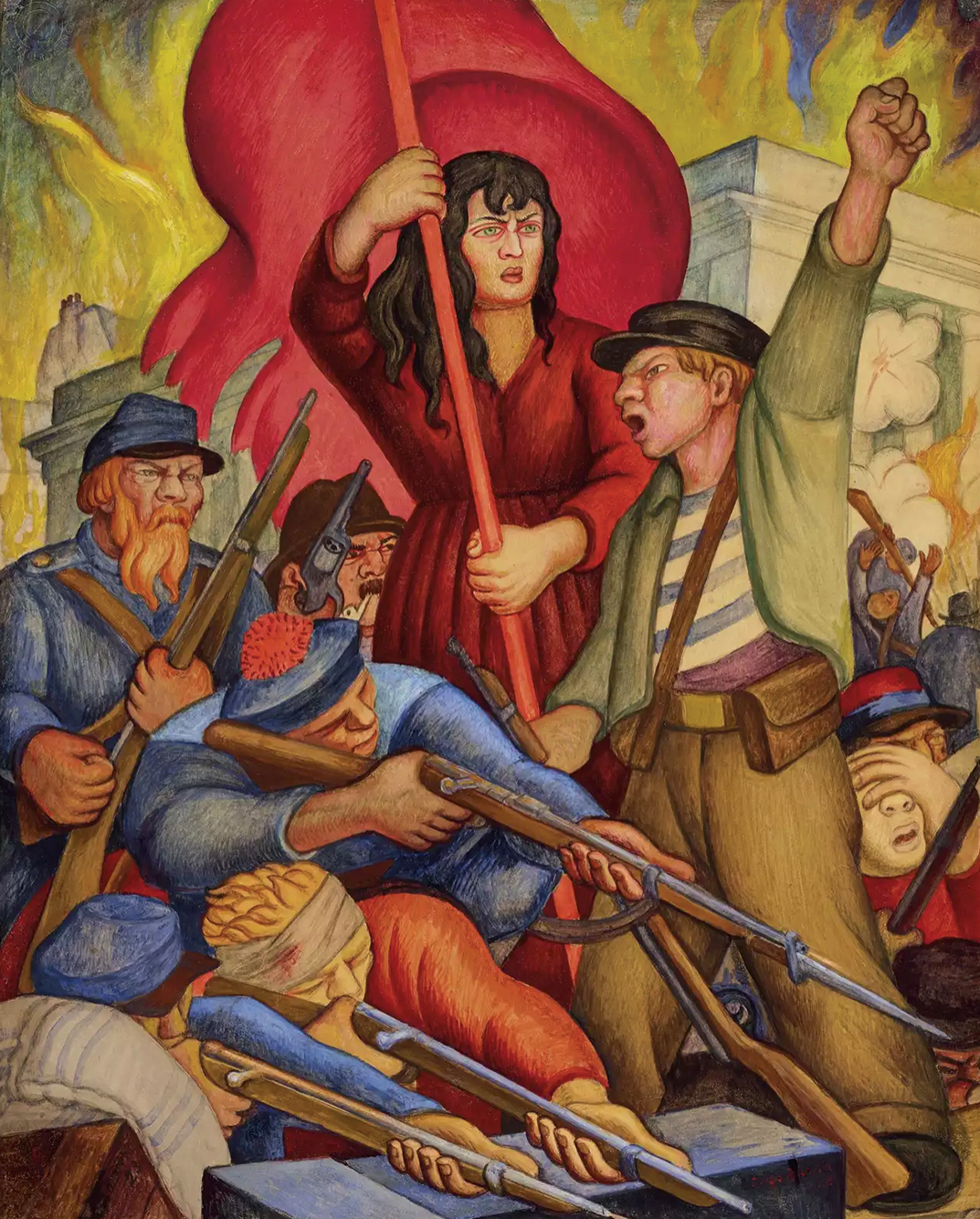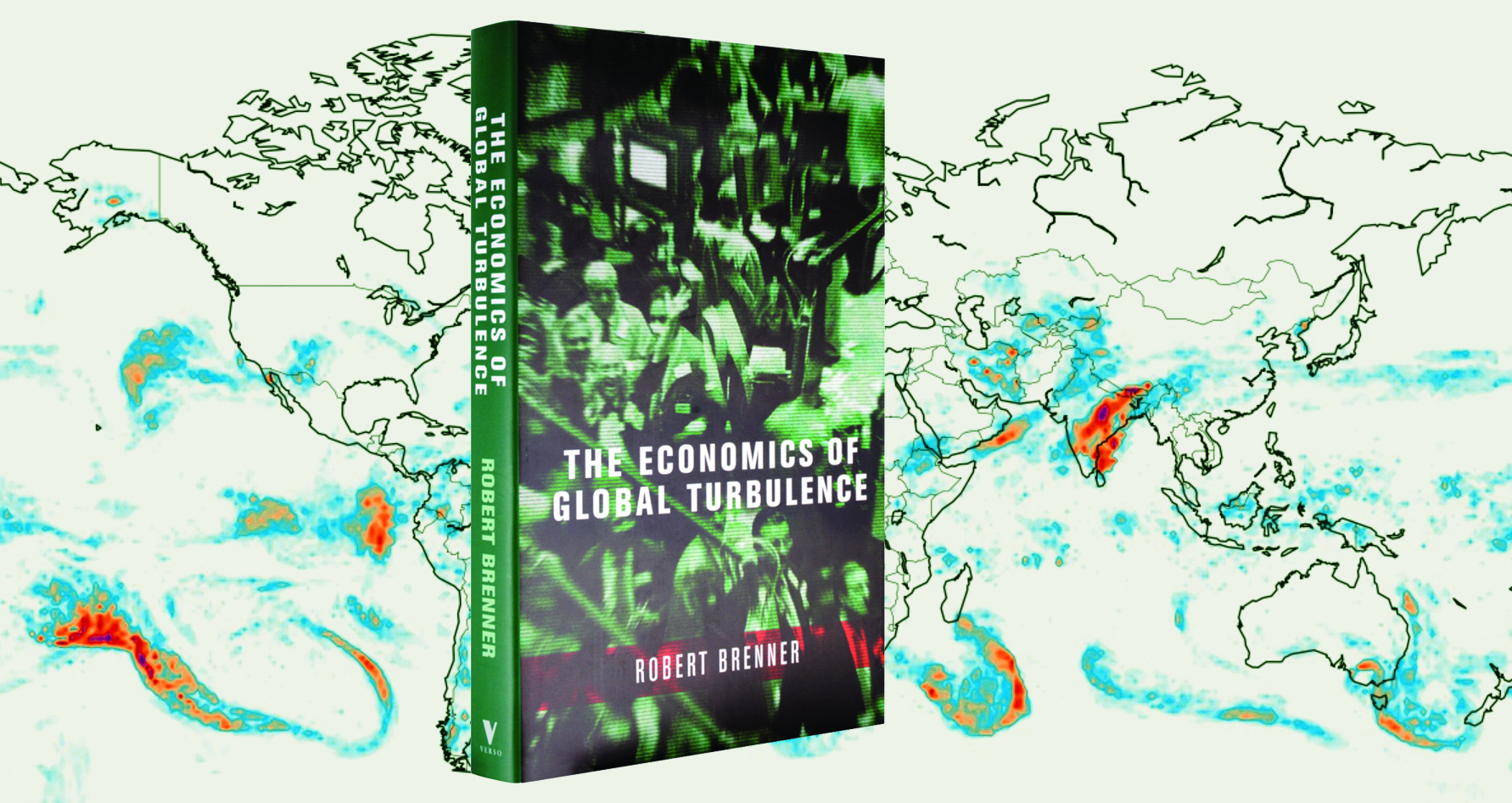The Revolutions Study Group
Lefebvre / Althusser: Humanist and Anti-Humanist Marxism
Could a unified Left leverage state power away from a disgruntled Right? Could it do so in the streets, in the factories, and through the ballot box? Could forces within the state be modified by organized pressure from the outside? Could pressure from the outside not only transform the inside but actually become that inside? These and more questions will be discussed.
States and Social Revolutions: A Comparative Analysis of France, Russia and China
Online: Zoom link will be provided to registered participantsSkocpol asserts that social revolutions are rapid and basic transformations of a society's state and class structures. She distinguishes this from mere rebellions, which involve a revolt of subordinate classes but may not create structural change, and from political revolutions that may change state structures but not social structures. What is unique about social revolutions, she argues, is that basic changes in social structure and political structure occur in a mutually reinforcing fashion and these changes occur through intense sociopolitical conflict. A convergence of peasant rebellion on one hand and international pressures causing state breakdown on the other hand cause revolutionary social movements.
Late Capitalist Fascism
What if fascism can no longer be confined to political parties or ultra nationalist politicians but has become something much more diffuse that is spread across our societies as cultural expressions and psychological states? This is the thesis developed by Mikkel Bolt Rasmussen, who argues that late capitalism has produced hollowed-out and exchangeable subjectivities that provide a breeding ground for a new kind of diffuse, banal fascism.
The European Radical Left: Movements and Parties Since the 1960s
With a unique 'two-level' perspective, Giorgos Charalambous approaches the left through both social movements and party politics, looking at identities, rhetoric and organization, and bringing a fresh new approach to radical history, as well as assessing challenges for both activists and scholars.
Soldiers of Revolution
In SOLDIERS OF REVOLUTION, historian Mark A. Lause analyzes changes in European warfare in the closing decades of the 19th century and the consequences for working-class movements. The Franco-Prussian War of 1870–71 introduced new military technologies, transformed the organization of armies, and upset the continental balance of power. The mass armies that became a new standard required mass mobilizations of working people, who exercised a new power through social democratic parties and insurgent movements.
Robert Brenner’s The Economics of Global Turbulence
We are engaged in a close reading and extensive discussion of Robert Brenner's The Economics of Global Turbulence: The Advanced Capitalist Economies from Long Boom to Long Downturn, 1945-2005. We read 10 to 15 pages in each session and expect to finish the book in 6 months. We will follow up with a reading of other recent works by Brenner, including The Boom and the Bubble.
Robert Brenner’s The Economics of Global Turbulence
We are engaged in a close reading and extensive discussion of Robert Brenner's The Economics of Global Turbulence: The Advanced Capitalist Economies from Long Boom to Long Downturn, 1945-2005. We read 10 to 15 pages in each session and expect to finish the book in 6 months. We will follow up with a reading of other recent works by Brenner, including The Boom and the Bubble.
Robert Brenner’s The Economics of Global Turbulence
We are engaged in a close reading and extensive discussion of Robert Brenner's The Economics of Global Turbulence: The Advanced Capitalist Economies from Long Boom to Long Downturn, 1945-2005. We read 10 to 15 pages in each session and expect to finish the book in 6 months. We will follow up with a reading of other recent works by Brenner, including The Boom and the Bubble.
Robert Brenner’s The Economics of Global Turbulence
We are engaged in a close reading and extensive discussion of Robert Brenner's The Economics of Global Turbulence: The Advanced Capitalist Economies from Long Boom to Long Downturn, 1945-2005. We read 10 to 15 pages in each session and expect to finish the book in 6 months. We will follow up with a reading of other recent works by Brenner, including The Boom and the Bubble.
Robert Brenner’s The Economics of Global Turbulence
We are engaged in a close reading and extensive discussion of Robert Brenner's The Economics of Global Turbulence: The Advanced Capitalist Economies from Long Boom to Long Downturn, 1945-2005. We read 10 to 15 pages in each session and expect to finish the book in 6 months. We will follow up with a reading of other recent works by Brenner, including The Boom and the Bubble.
Robert Brenner’s The Economics of Global Turbulence
We are engaged in a close reading and extensive discussion of Robert Brenner's The Economics of Global Turbulence: The Advanced Capitalist Economies from Long Boom to Long Downturn, 1945-2005. We read 10 to 15 pages in each session and expect to finish the book in 6 months. We will follow up with a reading of other recent works by Brenner, including The Boom and the Bubble.
Robert Brenner’s The Economics of Global Turbulence
We are engaged in a close reading and extensive discussion of Robert Brenner's The Economics of Global Turbulence: The Advanced Capitalist Economies from Long Boom to Long Downturn, 1945-2005. We read 10 to 15 pages in each session and expect to finish the book in 6 months. We will follow up with a reading of other recent works by Brenner, including The Boom and the Bubble.
Robert Brenner’s The Economics of Global Turbulence
We are engaged in a close reading and extensive discussion of Robert Brenner's The Economics of Global Turbulence: The Advanced Capitalist Economies from Long Boom to Long Downturn, 1945-2005. We read 10 to 15 pages in each session and expect to finish the book in 6 months. We will follow up with a reading of other recent works by Brenner, including The Boom and the Bubble.
Robert Brenner’s The Economics of Global Turbulence
We are engaged in a close reading and extensive discussion of Robert Brenner's The Economics of Global Turbulence: The Advanced Capitalist Economies from Long Boom to Long Downturn, 1945-2005. We read 10 to 15 pages in each session and expect to finish the book in 6 months. We will follow up with a reading of other recent works by Brenner, including The Boom and the Bubble.
Robert Brenner’s The Economics of Global Turbulence
We are engaged in a close reading and extensive discussion of Robert Brenner's The Economics of Global Turbulence: The Advanced Capitalist Economies from Long Boom to Long Downturn, 1945-2005. We read 10 to 15 pages in each session and expect to finish the book in 6 months. We will follow up with a reading of other recent works by Brenner, including The Boom and the Bubble.

